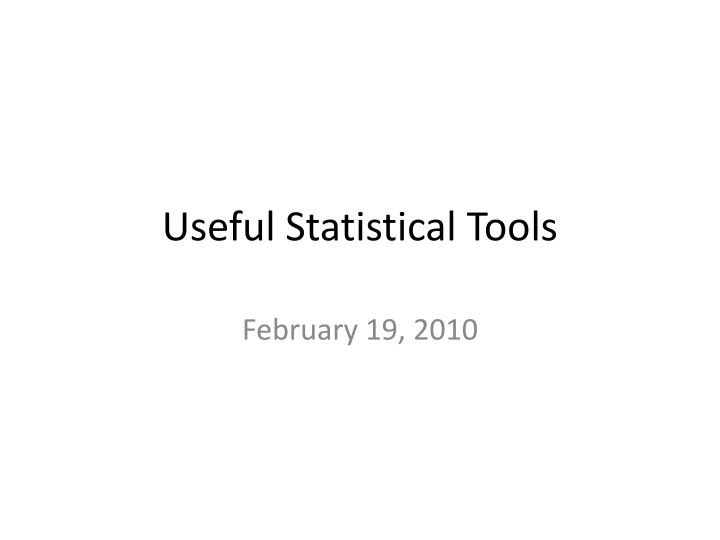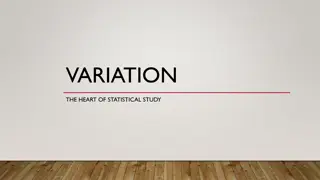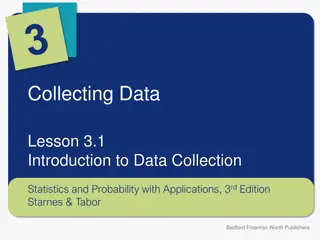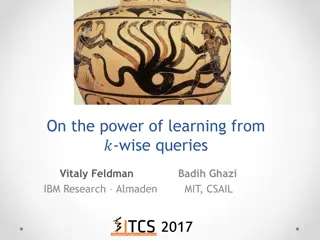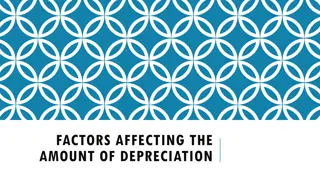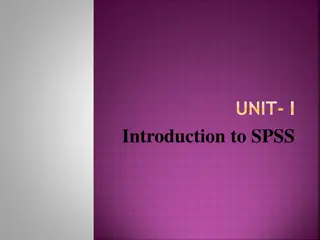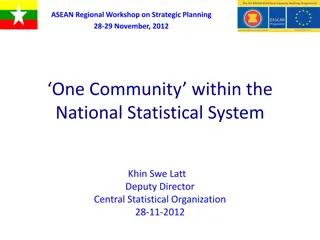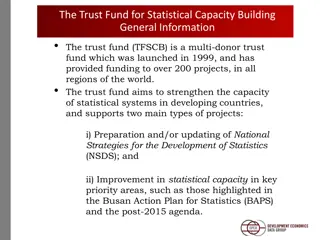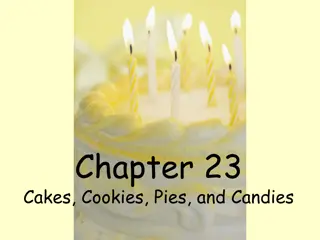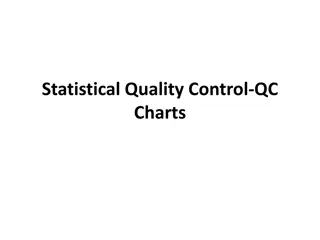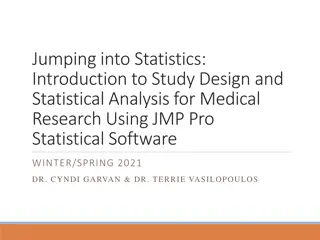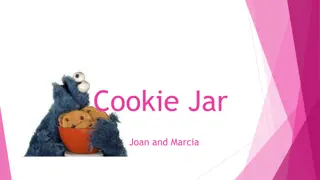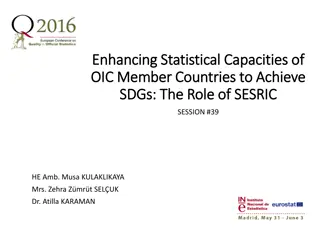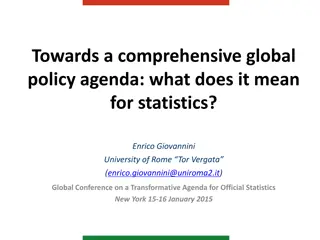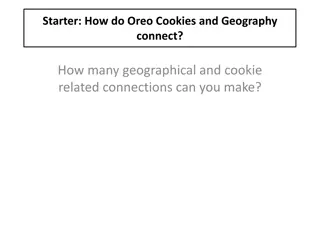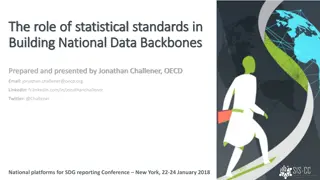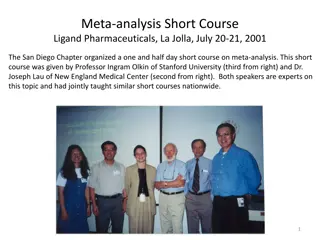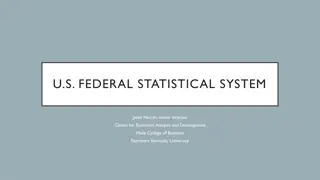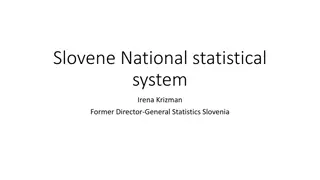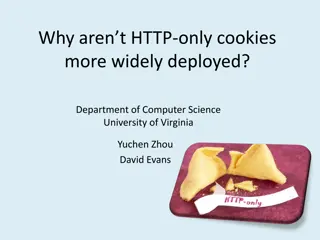Useful Statistical Tools: Probing Aphorisms and Cookies
In today's class, aphorisms were shared along with insightful advice on learning, interpreting, and engaging with others. The content also includes a fun cookie guessing activity. Dive into the world of statistical tools while exploring thought-provoking quotes and maintaining a sense of humor and curiosity. Embrace the learning journey with an open mind and a willingness to ask questions to uncover truths.
Download Presentation

Please find below an Image/Link to download the presentation.
The content on the website is provided AS IS for your information and personal use only. It may not be sold, licensed, or shared on other websites without obtaining consent from the author.If you encounter any issues during the download, it is possible that the publisher has removed the file from their server.
You are allowed to download the files provided on this website for personal or commercial use, subject to the condition that they are used lawfully. All files are the property of their respective owners.
The content on the website is provided AS IS for your information and personal use only. It may not be sold, licensed, or shared on other websites without obtaining consent from the author.
E N D
Presentation Transcript
Useful Statistical Tools February 19, 2010
Todays Class Aphorisms Useful Statistical Tools Probing Question Assignments Surveys
Aphorisms Get close enough to know the task, but stay far enough to see the patterns. "Humor happens, embrace it. "Much like improv, prom night, and getting into fights, the key to good contextual inquiry is to always say yes. "Learn as though you would never be able to master it; hold it as though you would be in fear of losing it. "Until you learn to interpret openly, you open yourself to mis-interpretation. "To know an answer, you must ask a question. To know a truth, you must contextually inquire the right question. "Your participant does all the hard stuff. All you have to do is talk about it and check your work "You cannot learn if you already know, unless you first learn how to forget! "Listen to the people around you, including to those you know well -- but listen deeper. "Do, or do not. There is no try."
Any guesses From those who did not email in? Juelaila has won the first cookie There is one cookie remaining
Aphorisms Get close enough to know the task, but stay far enough to see the patterns. "Humor happens, embrace it. "Much like improv, prom night, and getting into fights, the key to good contextual inquiry is to always say yes. "Learn as though you would never be able to master it; hold it as though you would be in fear of losing it. "Until you learn to interpret openly, you open yourself to mis-interpretation. "To know an answer, you must ask a question. To know a truth, you must contextually inquire the right question. "Your participant does all the hard stuff. All you have to do is talk about it and check your work "You cannot learn if you already know, unless you first learn how to forget! "Listen to the people around you, including to those you know well -- but listen deeper. "Do, or do not. There is no try."
Aphorisms Get close enough to know the task, but stay far enough to see the patterns. "Humor happens, embrace it. "Much like improv, prom night, and getting into fights, the key to good contextual inquiry is to always say yes. "Learn as though you would never be able to master it; hold it as though you would be in fear of losing it. "Until you learn to interpret openly, you open yourself to mis-interpretation. "To know an answer, you must ask a question. To know a truth, you must contextually inquire the right question. "Your participant does all the hard stuff. All you have to do is talk about it and check your work "You cannot learn if you already know, unless you first learn how to forget! "Listen to the people around you, including to those you know well -- but listen deeper. "Do, or do not. There is no try."
Cookies! "Do, or do not. There is no try. Juelaila answered first "Until you learn to interpret openly, you open yourself to mis-interpretation. No answers
Lets discuss A few of these aphorisms Do you think that they help us understand the idea and practice of contextual inquiry better?
Your thoughts? Get close enough to know the task, but stay far enough to see the patterns.
Your thoughts? "Much like improv, prom night, and getting into fights, the key to good contextual inquiry is to always say yes.
Your thoughts? "Until you learn to interpret openly, you open yourself to mis-interpretation.
Your thoughts? "Your participant does all the hard stuff. All you have to do is talk about it and check your work
Your thoughts? "You cannot learn if you already know, unless you first learn how to forget!
Todays Class Aphorisms Useful Statistical Tools Probing Question Assignments Surveys
Useful Statistical Tools Power Analysis Meta-Analysis Imputation
Power Analysis A set of methods for determining The probability that you will obtain a statistically significant result, assuming a true effect size and sample size of a certain magnitude
Or The reverse Given a certain true effect size, and a desired probability of obtaining a statistically significant result, what sample size is needed?
Why? When? Why might a researcher want to do each type of power analysis? When might a researcher want to do each type of power analysis?
When used Effect size + Power --> Sample Size Usually used before running study to pick sample size Effect size + Sample Size --> Power Usually used after running study to explain to thesis committee why more subjects are needed
Power analysis Can be computed from Effect Size / Cohen s d (M1 M2)/ (pooled SD, e.g. ) r Difference in two r values And several other metrics
Power analysis Can be computed for Single-group t-test Two-group t-test Paired t-test F test Sign test Etc., etc., etc.
Mathematical Details Differ for different statistical tests and metrics Possible to do this in online power calculators
Sign Test Example (Courtesy of John McDonald)
What is a good value for power? Conventionally, power = 0.80 is treated as good Kind of a magic number
Play with calculator http://www.cs.uiowa.edu/~rlenth/Power/ Two-sample t-test
Volunteer #1 If the true effect size is 0.5 how big a sample do you need to achieve Power = 0.8?
Volunteer #2 If the true effect size is 0.2 how big a sample do you need to achieve Power = 0.8?
Volunteer #3 If your control condition gains 20 points pre-post And your experimental condition gains 40 points pre- post And the pooled standard deviation is 30 points And you have 20 students in each condition What s your statistical power?
How can statistical power be increased? Both in theory, and in real life
How can statistical power be increased? Increase sample size
How can statistical power be increased? Increase difference in means Make your intervention better
How can statistical power be increased? Increase difference in means Make your control condition worse Some researchers make the mistake of picking a control condition that s impossibly good ScienceAssistments versus ScienceAssistments, with one less potential IV This doesn t mean you should fish for a control condition that is absurdly awful DrScheme versus Learning programming through interpretive dance Miley s World versus Learning math through reading textbooks
How can statistical power be increased? Increase difference in means Make your control condition worse Some researchers make the mistake of picking a control condition that s impossibly good ScienceAssistments versus ScienceAssistments, with one less potential IV This doesn t mean you should fish for a control condition that is absurdly awful DrScheme versus Learning programming through interpretive dance Miley s World versus Learning math through reading textbooks written in Danish
How can statistical power be increased? Reduce standard deviation What methods have we discussed in class that could help us do this?
How can statistical power be increased? Reduce standard deviation What methods have we discussed in class that could help us do this? Stratification
Meta-Analysis Very important point, right up front There is meta-analysis And then there are the statistical techniques used in meta-analysis Much broader in application than just classical meta-analysis!
Meta-Analysis In the classic sense, integrating across a set of previous studies, to attempt to find an overall effect size or significance of finding across all those studies
Examples Kulik & Kulik (1991) computer-aided instruction does 0.3 better than traditional instruction Cohen, Kulik, & Kulik (1982) found that expert tutors do 2.3 better than traditional instruction; novice tutors only do 0.4 better than traditional instruction
Process of doing a meta-analysis Find all the studies on topic of interest Find measure of interest (effect size or statistical significance) Integrate across studies
Challenges What might make it difficult to Find all the studies on topic of interest ?
Challenges to Finding all Studies Knowing what terminology to use in literature review many phenomena have many names Off-task behavior, Time-on-task, Percent On-Task, Attention Gaming the system, Systematic Guessing, Hint Abuse, Help Abuse, Executive Help-Seeking, Letaxmaning, Off-Task Gaming Behavior, Player Transformation, Goal Structure Misalignment
Challenges to Finding all Studies File-Drawer Effect Papers with null results get rejected by conference program committees and journal reviewers Papers with null results don t get submitted in the first place
